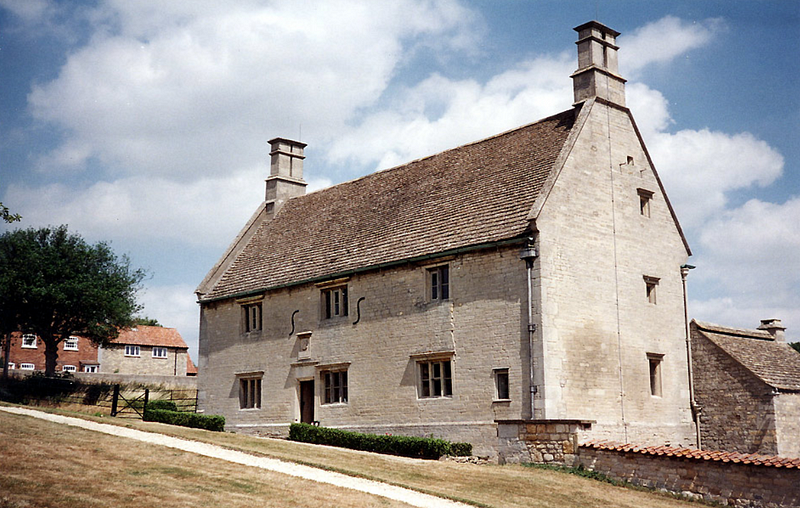Unveiling Isaac Newton: The Scientist Beyond the Science
Written on
Chapter 1: The Legacy of Isaac Newton
Sir Isaac Newton is a towering figure in the annals of scientific history. Celebrated for his groundbreaking contributions, he was born on Christmas Day in 1642. His work, particularly in formulating the three laws of motion and the law of universal gravitation, laid the groundwork for classical mechanics. Yet, despite his monumental scientific achievements, Newton's life was also marked by personal struggles and an insatiable quest for knowledge that transcended the boundaries of physics.
The Humble Origins of a Genius
Newton's formative years were characterized by modest beginnings and personal challenges, which would eventually pave the way for his extraordinary discoveries. Born in Woolsthorpe Manor, Lincolnshire, his entry into life was fraught with difficulties. As a premature infant, his survival was uncertain, and it was said he could fit inside a quart mug. The loss of his father, who died shortly before his birth, and his mother's decision to remarry, leaving him with his grandparents at just three years old, significantly shaped his early experiences.
This sense of abandonment likely influenced Newton's character, fostering a deep drive for knowledge and a refuge in intellectual pursuits. Early on, he demonstrated a remarkable curiosity. At just nine years old, he crafted a working model of a windmill, inspired by one in his village.
His formal education began at the King's School in Grantham, where he was recognized as a diligent and introspective student. Encouraged to continue his studies, Newton faced a setback when his mother sought to remove him from school for farming. Fortunately, his schoolmaster intervened, allowing him to return and eventually attend the University of Cambridge in 1661. There, he worked as a valet to support himself, a common practice among less affluent students. Cambridge exposed him to the works of great philosophers and mathematicians, but it was his innate curiosity and willingness to challenge established beliefs that truly set him apart.
The period of his studies was disrupted by the bubonic plague in 1665, forcing Newton to retreat to Woolsthorpe Manor.
The Emergence of Gravitational Theory
During 1665 to 1667, while the bubonic plague swept through Europe, Newton returned to Woolsthorpe Manor, marking a transformative period in his life. Known as his "annus mirabilis" or "year of wonders," this time was characterized by remarkable productivity. Isolated from the distractions of academia, he laid the foundation for several significant scientific contributions.
Among his notable achievements was his exploration of light and color. Through experiments with prisms, he revealed that white light comprises multiple colors, contradicting the then-dominant belief rooted in Aristotle's theory of color as a mixture of light and darkness. This work laid the groundwork for his theories on optics.
Additionally, during this retreat, Newton delved into the concept of gravity. The famed story of an apple falling from a tree served as a catalyst for his contemplation on gravitational forces, leading him to formulate the law of universal gravitation.

This inquiry was complemented by his invention of calculus, a mathematical framework that would allow him to express the principles of motion and gravitation. Although he initially kept many of his findings private, this period of intense study laid the groundwork for his future public achievements, including his seminal work, the Principia Mathematica.
Chapter 2: The Controversy of Calculus
The emergence of calculus led to a fierce dispute with German mathematician Gottfried Wilhelm Leibniz, who independently developed a similar mathematical framework in 1684. When Newton learned of Leibniz's work, he asserted that he had conceived his version of calculus twenty years earlier. The conflict centered not on the substance of their contributions but on the timing of their respective publications.
Newton's reluctance to share his discoveries and his sensitivity to criticism meant that his work on calculus remained largely unknown outside a close circle of acquaintances. The Royal Society, where Newton was a member and later president, became the battleground for this dispute. His influence within the society allowed him to claim priority over Leibniz, resulting in a prolonged and bitter controversy that divided the mathematical community.
Most historians now recognize that both Newton and Leibniz made independent contributions to calculus, each offering unique insights. This contentious episode reflects Newton's complex relationship with public scrutiny, which, rather than hindering his scientific endeavors, propelled his commitment to rigorous experimentation and analysis.
Chapter 3: Alchemy and the Pursuit of Knowledge
Amid his scientific achievements, Newton harbored a profound interest in alchemy, which may seem at odds with his rational scientific endeavors. Alchemy, the precursor to modern chemistry, revolved around the transmutation of base metals into noble ones, notably the quest to convert lead into gold and discover a universal elixir for eternal life. For Newton, alchemy was a serious pursuit, believed to unlock fundamental truths about nature.

Newton's alchemical explorations spanned over thirty years and remained largely hidden during his lifetime, surfacing only posthumously when his manuscripts were discovered. These writings reveal a man deeply immersed in alchemical studies, meticulously experimenting with various substances.
This secretive engagement in alchemy showcases a side of Newton that contrasts with the image of the rational scientist. His belief in hidden forces within nature paralleled his scientific inquiries into observable phenomena. While some may view his fascination with alchemy as a diversion from science, others argue it was integral to his quest for understanding the universe.
Chapter 4: Newton's Role in the Royal Mint
In the latter part of his career, Newton took on an unexpected role as the Warden, and later the Master of the Royal Mint. His appointment in 1696 marked a shift from academia to a position demanding practical analytical skills. Britain's currency faced significant issues due to clipping and counterfeiting, and Newton approached these challenges with the same meticulousness as his scientific work.
Under his leadership, the Mint undertook a major project to recall and reissue currency, a task requiring organization and an understanding of metallurgy. Newton’s attention to detail was crucial, leading to several reforms that enhanced the accuracy and reliability of coinage.
Additionally, he took a personal interest in combating counterfeiting, often conducting investigations himself. This commitment to enforcing the law highlighted a lesser-known aspect of his character: a dedication to justice and a willingness to tackle the pressing challenges of his time.